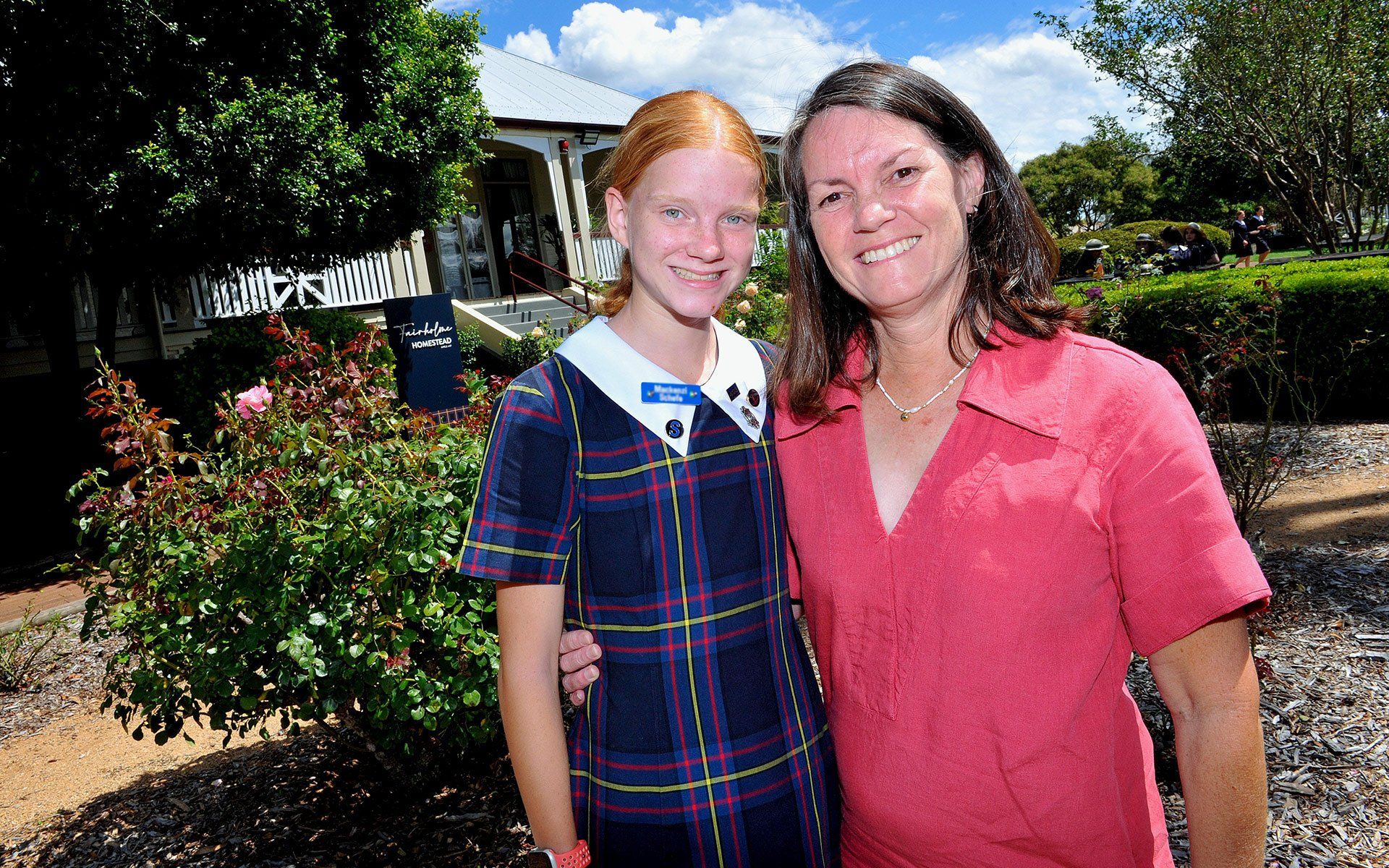The Ties That Bind
The fabric of Â鶹ÊÓƵis interwoven with stories from generations of strong, independent females. None more so than Year 9 student Mackenzie Schefe and her family, where three generations of trail-blazing women have preceded her at Â鶹ÊÓƵand who, because of their sporting, academic and cultural excellence, will forever be a significant strand in the MacLaren tartan.
Among Mackenzi’s ancestors are College Duxes, Â鶹ÊÓƵPrefects, a House Captain, athletics champions and, significantly, the first woman on College Council (also the first FOGA Representative) – true pioneers of the early women’s movement.
‘I often think about how our ancestors have run on the same oval and walked the same school grounds,’ Mackenzi’s mum, Karen, reflects. ‘It makes me proud that our family had such a significant impact and made a strong contribution to the College. Hopefully, this will continue in future generations.’
The Schefe family’s connections date back to the 1920s when Aenid and Beris Rosbrook started their Â鶹ÊÓƵjourney as students and their father, Mackenzi's great-great grandfather, James William Rosbrook, was a College Council member.
‘I grew up listening to stories from my Aunties about their days at Fairholme.
‘I remember my Aunty Julanne coming home from Melbourne for the Christmas holidays and taking us swimming in the outdoor Â鶹ÊÓƵpool, all the while recounting stories about her swimming carnivals there and how sometimes she and her friends would have to fish funnel-web spiders out of the pool before they swam!’
Karen goes on to say that Julanne was a very confident young woman when she left Â鶹ÊÓƵ- and her own family home - at the age of 17 to study at NIDA in Sydney; a bold move for a young woman in those days. 'Julanne did all her schooling at Â鶹ÊÓƵwhich is where she became the lady she was: strong and independent and confident. I know for sure that Â鶹ÊÓƵgave her the love of the theatre, where she ended up having a great career.
‘Visiting Great-Aunt Beris – who was the most beautiful and kind lady – it was clear that Â鶹ÊÓƵhad fostered in her a never-ending love of learning. Between Aunty Beris and Aunty Julanne, I saw first-hand how Â鶹ÊÓƵinstilled the power to become anything you put your mind to. And I still see it today with Mackenzi’s journey,’ Karen says.
14-year old Mackenzi, already a powerhouse in athletics, says her love of running began in Kindy where all she wanted to do was run! 'My favourite sports event at Â鶹ÊÓƵis Cross Country, and I enjoy the Athletics carnivals every year. But my sporting highlight would have to be when I was in Year 2 and I won the Cross Country trophy.’
Aside from her sporting achievements and accolades, Mackenzi feels lucky to have already had teachers and peers at Â鶹ÊÓƵwho have championed her in life. “I have been so lucky with the teachers I have had; my Year 2 teacher left a special mark in my heart. She gave me so much support and confidence with not just my sports, but my school work. She has had a lot to do with who I have become and becoming.
‘There was a Senior girl, who left last year, who was my buddy for my Year 2 Cross Country. She was in Year 6 at the time and I remember training with her and thinking how cool it was that an older girl was taking the time to encourage and support me, and I was only in Year 2!”
While Mackenzie takes after her mum when it comes to sports - Karen has won many a road race, Triathlon, and is a Queensland Duathlon Champion – Karen says it’s her daughter’s determined mindset that is the strongest. 'Mackenzi’s sporting strengths are probably her motivation and how dedicated she is to her training. It helps that she has a great group of like-minded athletes that she trains with. Her Â鶹ÊÓƵcoaches and teachers are very supportive and eager for her to do well.’

It seems the ties that have bound the four generations of Schefe and Rosbrook females to Â鶹ÊÓƵhave been threaded with respect, empowerment, and lifting up each other.
‘Â鶹ÊÓƵgave me so many memories and lessons I have taken with me throughout my life, and which I try to pass onto my daughter everyday: respect, work ethic, a feeling of belonging and a strong sense of self,’ Karen says.
‘Right from the mid 1920s when great Aunt Aenid and Beris walked the new paths of Fairholme, to today where Mackenzi walks those same, but now well-worn paths of females before her, it’s been the same – a place where barriers are broken, where females are championed to inspire and innovate and are encouraged and nurtured and uplifted to be the best version of themselves.
‘There is no limit to what Â鶹ÊÓƵwomen can accomplish.’
More News



More News…







